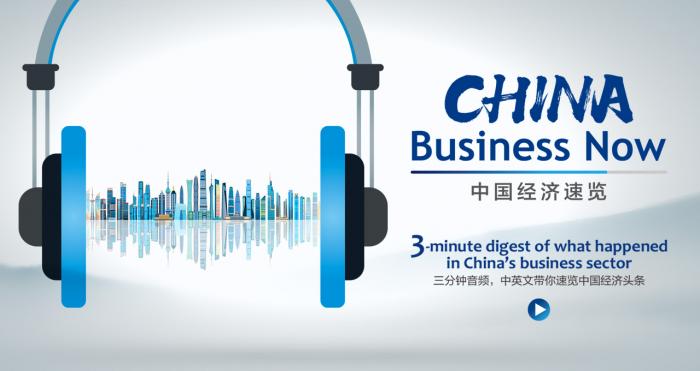S: Hi everyone. Welcome to CBN Friday Special, I’m Stephanie LI.
R: And I’m ZHANG Ran. So I have a question for you, Stephanie. What do you know about the app Xiaohongshu?
S: Well, for all I know, it’s a platform for people to share the same interests or lifestyles. For example, a lot of animal-loving people would use the app to share photos or videos of their lovely pets. I used to look for exercising or cosmetics tips on Xiaohongshu as well. They have all sorts of internet influencers to show you how to keep shape using video instructions, a bit like taking a course in the gym.
R: Yeah, sometimes I’d do that too. But recently I found the platform has become less of a community but more like a vast campaign machine for brands. There is a popular saying that “5000 Xiaohongshu posts + 2000 Zhihu posts + top live-streamer = a new brand.” The seemingly objective contents generated by KOLs, or Key Opinion Leaders, are sometimes paid contents for Xiaohongshu’s customers’ marketing needs.
S: In fact, Xiaohongshu has been warned many times before it was fined by Chinese regulators for it not only has obscene and indecent content, but also sells fake products. Over the years, every time the app has received warnings, the company promised that it would change and rectify, making it an “expert of apology.” But it seems that things haven’t gone better.
R: Yes. Practically, it’s almost impossible for Xiaohongshu to fully stop unscrupulous, deceptive and fraudulent content from appearing on the platform. In order to get the traffic needed, the platform always wants to convert as many users and contents as possible, which makes it more or less a media company, but a commercial one. So the question is, can a tech company like Xiaohongshu to carry the same social responsibility as a media company?
S: Good question. Since Xiaohongshu is a search-based platform, which brings problems to its recommendation algorithms, it needs to upgrade its technology and make technology for good.
R: And Xiaohongshu isn’t the only platform struggling. Zhihu, the country’s largest question and answer online community, was summonded by the authority on Monday for publishing “forbidden” information, resulting in a suspension of the comment function on its website. The New York-listed Zhihu was slapped with an undisclosed penalty by Beijing’s internet authority, which resulted in a 9.5 percent decline of the company’s shares on Monday in the US.
Last week, the Cyberspace Administration of China (CAC) has fined Weibo 3 million yuan for repeatedly allowing the publication of “Information forbidden by law and regulations.”
And if you still remember, the rating platform Douban was removed from China’s app stores by the Ministry of Industry and Information Technology, along with 105 other smartphone apps, after it was fined 1.5 million yuan for publishing “illegal” information.
S: The series of actions shows the platforms’ failure to moderate their content, but it’s also the result of tightened internet regulations in the country. China’s tech industry has been hit by sweeping regulatory crackdowns since the second half of 2020.
China’s largest internet companies have experienced a massive stock sell-off, losing over $1 trillion of market cap since February 2021. That’s more than Singapore’s entire equity market, which is the biggest in Southeast Asia.
So basically, what happened is Chinese internet industry has entered a new phase with both push and pull factors forcing them to evolve. The regulatory tightening is driven by Beijing’s desire to better align the country’s technology development with national strategic goals and public interests. Ran, maybe you could give us some examples.
R: In July, the MIIT announced a six-month internet clean-up campaign. A total of 220,000 apps were removed that month, for a net loss of 110,000, or 3.6 percent less than the previous month.
In September, the Communist Party and State Council released internally a set of guidelines for building a “cyberspace civilisation”. It urges all levels of government to bring ideology, culture, moral standards and online behaviour under control.
This year, we have witnessed the “walled garden” being torn down bit by bit, US-listed Chinese companies pursuing listings closer to home, and crypto-currency companies shutting down their businesses in China. With one week left in 2021, let’s wait and see what happens next.
近日,媒体曝光“小红书”App存在推送未成年人身体隐私短视频情况,持续引发热议。目前,“小红书”已作出回应,对报道提及的审核漏放情况致歉,并透露平台将于近期启动新一轮未成年治理专项。
小红书在官网的简介为“年轻人的生活方式平台”,但近年来,小红书正在成为一个巨大的品牌宣传机器。有一个流行的说法是:“5000篇小红书帖子+2000篇知乎帖子+头部主播带货=一个新品牌”。通过各种激励计划,小红书正在动员越来越多用户为品牌创作内容,以迎合其营销需求。
近年来,国内相关部门已多次警告小红书,媒体也报道称该软件含有淫秽下流的内容,且存在销售假货的现象。每次受到警告,小红书都声称将作出改变、进行整顿,却屡屡出现问题。据分析,为了获取流量,平台往往会转化尽可能多的用户和内容,形式向媒体靠拢。但其具有商业目的,难以像媒体一样承担相应的责任。
另一方面,平台以搜索为主的模式,也会导致其推荐算法存在缺陷,小红书若要改进,需要对其技术进行升级,使技术“为善”。
除了小红书,多个社交平台今年都受到约谈处罚。本周,知乎网负责人因平台多次出现法律法规禁止发布或者传输的信息等问题被约谈。12月14日,微博接到300万元罚单,国家互联网信息办公室还要求其立即整改,严肃处理相关责任人。继因屡次出现法律、法规禁止发布或者传输的信息情节严重收到150万的罚单,12月9日,豆瓣及其他105个app遭工信部下架处理。
去年下半年以来,中国在反垄断、金融科技、信息保护、加密货币等多方面加强了对科技公司的监管。蚂蚁集团上市受阻、拆除平台之间的“围墙花园”、关闭加密货币大门之后,社交平台又将迎来怎样的改变?我们拭目以待。
S: On a different note, the Chinese mainland reported 55 new local COVID-19 cases yesterday, including 49 from Xi’an city.
Disciplinary authorities in Xi'an have punished 26 people since Dec.4 when the city reported an imported case from Pakistan, for their failure to follow disease control protocol and chaotic management.
Starting Thursday, the 13 million residents in Xi'an are under lockdown. The city has reported a total of 227 cases since Dec.9.
全国昨日新增本土确诊55例(陕西52例,其中西安市49例、延安市2例、咸阳市1例;浙江1例,在绍兴市;广东1例,在东莞市;广西1例,在防城港市)。
自2021年12月9日以来,陕西省累计报告本土确诊病例235例,其中西安市227例、延安市4例、咸阳市4例。自12月4日巴基斯坦航班境外输入新冠肺炎疫情以来,西安市已追责问责疫情防控不力基层党组织和单位4个,处理相关责任人26名,通报曝光2起14人。
R: Last but not least, let’s take a quick look at the stock markets. Chinese stocks closed lower on Friday with lithium battery-related stocks recording losses and the ChiNext Index tumbling 2.27 percent. The Shanghai Composite lost 0.69 percent, and the Shenzhen Component closed 1.03 percent lower. The Hang Seng Index gained 0.13 percent as it closed at noon for the Christmas holiday.
周五A股三大指数走低,锂电池概念重挫。创业板指大跌2.27%,沪指收跌0.69%,深成指跌1.03%。今日港股因圣诞节假期只交易半天,午间收盘时,恒指涨0.13%。

Executive Editor: Sonia YU
Editor: LI Yanxia
Host: Stephanie LI, ZHANG Ran
Writer: Stephanie LI, ZHANG Ran
Producer: XIANG Xiufang
Sound Editor: ZHANG Ran, Andy YUAN
Graphic Designer: ZHENG Wenjing, LIAO Wanni
Co-produced by 21st Century Business Herald Dept. of Overseas News & SFC Audio/Video Dept.
Presented by SFC
编委: 于晓娜
策划、编辑:李艳霞
播音:李莹亮、张然
撰稿:李莹亮、张然
监制:向秀芳
音频制作:张然、袁思杰
设计:郑文静、廖苑妮
21世纪经济报道海外部 南财音视频部 联合制作
南方财经全媒体集团 出品
(作者:李莹亮,见习记者张然 编辑:李艳霞)